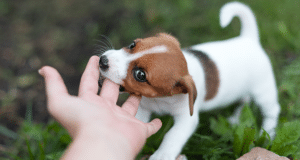Spaying or neutering your dog is an integral part of responsible pack leadership.It not only helps keep your dog safe from several medical issues, but it also helps reduce overpopulation. Every day, pets across the nation are euthanized because shelters don’t have the space or resources to care for them. You are helping to stop this tragic problem by spaying or neutering your dog.
Spay and Neuter Benefits
As a pet owner, you know they are a part of your family. You want to ensure that they are healthy and happy, which means making sure they are spayed or neutered. Contrary to popular belief, this is not just for animal control reasons – it’s actually for the health and well-being of your pet. Here are just a few reasons why spaying or neutering is so important. Read on to learn more.
Saves You Money
This might be a shocker, but surgery costs substantially less than caring for a litter of puppies. Behavior and medical issues can stem from not having this procedure done, which will mean more money out of pocket down the road. To help keep costs minimal, check into local programs that offer low-cost spay/neuter.
Increased Health Benefits
Often, female dogs have to deal with breast cancer and uterine infections if they are not spayed before their first heat. Spaying female dogs can help prevent your furry friend from many medical issues. Neutering male dogs can help prevent dangerous diseases and testicular cancer. Ask your vet the earliest age your pup can have the surgery for the best prevention.
Better Behavior
If you fail to spay or neuter your dog, you can experience some unpleasant behaviors. Female dogs typically go into heat two times a year; these episodes can last anywhere from two to three weeks. She might howl and urinate more (maybe indoors) which will attract unneutered males. Male dogs will exhibit behaviors to attract females and often will become aggressive. Male dogs will likely try to run from you, hoping to seek a mate. They might also “mark,” which is urinating on upright objects.
Local Community Benefits
Neutering or spaying your pup means fewer dogs will be put down, which is great news for pet owners and communities. It also helps reduce the number of unwanted animals on our streets! Stray pups are a problem because they’re more likely to cause trouble, and they could damage property, start car accidents or bite people. When a few strays cause significant issues in an entire community, it can negatively influence their opinion about dogs.

Common Questions Related to Spaying and Neutering
I Am Not Sure If My Dog Needs To Be Spayed or Neutered.
This one has a simple answer. Male dogs are neutered, and female dogs are spayed.
Is the Surgery Safe?
Yes. It is a standard medical procedure, so as long as you work with a licensed veterinarian, you can rest assured that they likely have a wealth of experience with the surgery. There is some risk whenever an animal is put under anesthesia, but your veterinarian will be on the lookout for signs of illness or any other possible complications.
What Can I Do to Keep my Dog Safe?
Follow pre-op and post-op instructions carefully. If you have questions, don’t hesitate to call your vet.
How Old Does My Dog Need to Be?
The American Veterinary Medical Association recently endorsed Early Age Neutering, which can be done as early as two months or two pounds, but the average age is four months. Specific laws in your area may require your dog to be spayed or neutered by a certain age.
Where Can I Find a Low-Cost Spay/Neuter Service in My Area?
The ASPCA has an excellent database where you can look for vets offering discounted services in your area.
Should I Wait Until My Female Dog Has Had One Litter Before Spaying?
No, it’s easier on your dog to have the surgery before her first heat. Plus, allowing your dog to have some puppies contributes to the pet overpopulation problem. If you’d like to give your children the experience of seeing a birth, consider fostering a dog already pregnant at a local rescue or shelter.
Should My Female Dog Go Into Heat Before She’s Spayed?
No, you can significantly reduce her risk of mammary tumors by doing so before her first heat.
How Long After Giving Birth Can My Dog Be Spayed?
The procedure can be done as soon as the pups are weaned, usually four to five weeks.
What Are Some of the Health Benefits of Spay/Neuter?
Female dogs have no risk of infections, cancers, or diseases of the uterus (which is removed) and a reduced risk of breast cancer. Male dogs have no chance of testicular cancer and a reduced risk of prostate cancer. The surgery also reduces some problem behaviors related to mating, such as roaming, marking, and aggression.
Will My Dog Be Given Pain Relief?
Yes. Your dog won’t feel any pain during the surgery. Typically, dogs are given an injection that will provide pain management for eight to twelve hours after the surgery. And you may also be given medication that you can provide at home. Never administer human pain medications because many of them can poison your dog.
Will My Dog Get Fat After the Surgery?
No, this is a myth. Just like humans, dogs gain weight if they’re eating too much or not getting enough exercise. Provide your dogs with regular walks and healthy meals, and they’ll stay fit!
Will My Guard Dog Stop Protecting Me?
No. In fact, most police canine units spay or neuter their dogs. If your dog has been trained to be a guard dog, he will still be able to protect you after the procedure.
Your veterinarian is the best source of information for your spay/neuter questions. They can help inform you about your dog’s specific needs regarding the surgery.











